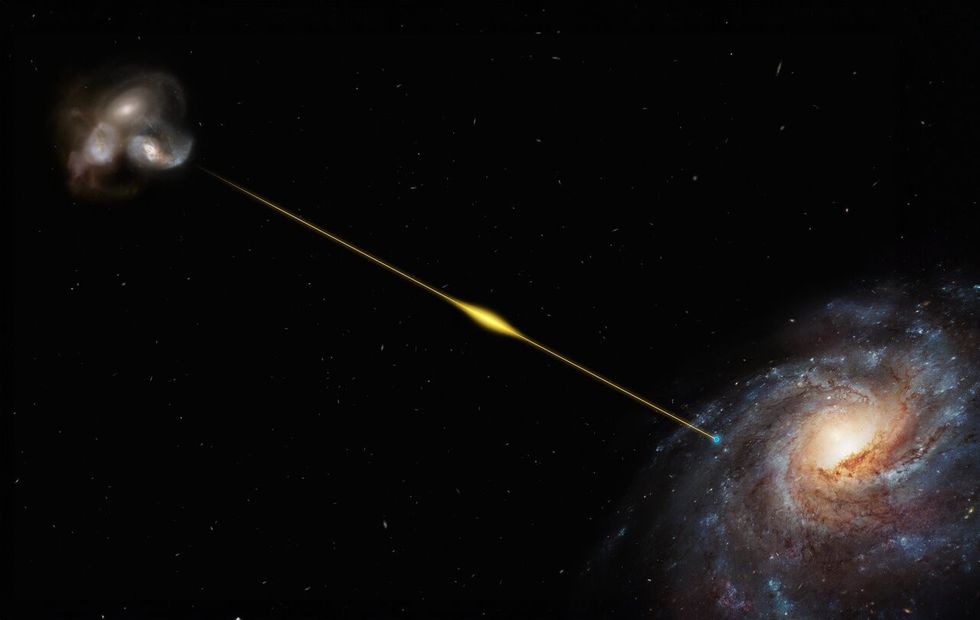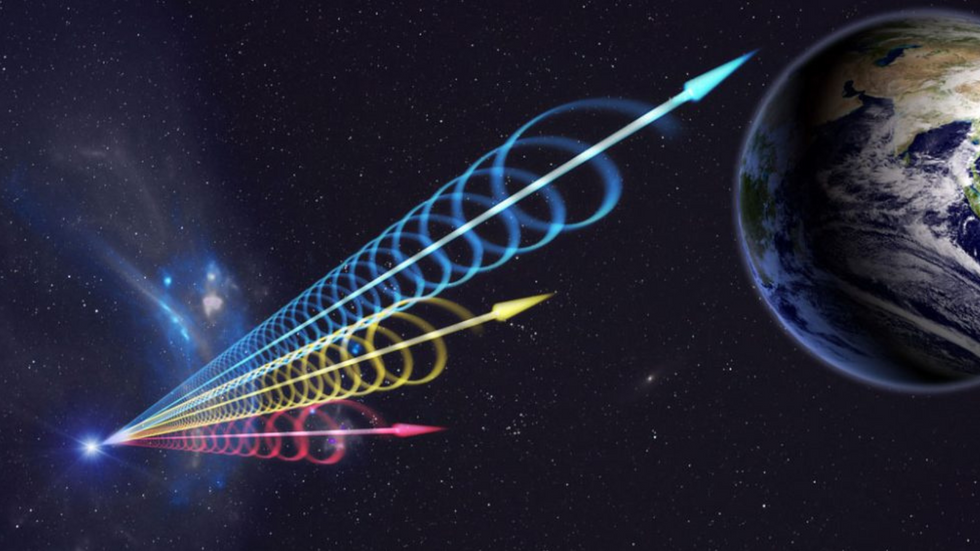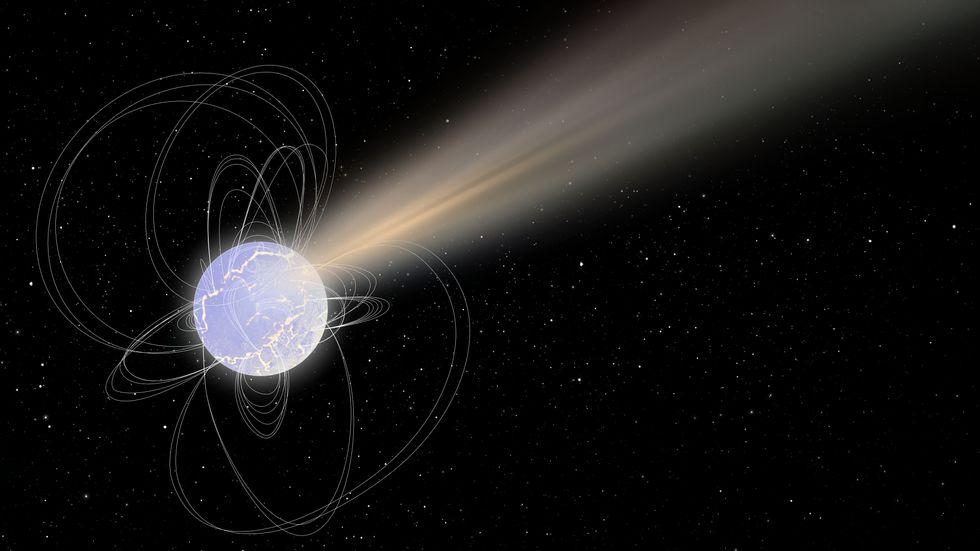Scientists left shocked as they finally identify source of mysterious space signals
Scientists have tracked a mysterious radio signal from deep space to its source, making a discovery which has left researchers stunned.
A powerful blast of energy, known as a fast radio burst, has been traced back to its home galaxy in a breakthrough which challenges existing theories about these cosmic phenomena.
The findings, revealed this week, mark a significant development in astronomers’ efforts to understand these enigmatic space signals, which have puzzled the scientific community for years.
Fast radio bursts, or FRBs, are incredibly brief yet powerful blasts of energy which emerge from the depths of space.

The FRB in the new study was first spotted in February 2024.
It continued to ‘pulse’ for a few months up to July 2024, which helped researchers to find its position in the sky.
Scientists have long sought to explain these mysterious signals, with theories ranging from the grounded – black holes – to the fantastic: potential alien technology.
These intense bursts have captured researchers’ attention due to their extreme power and short duration – and by tracking them back to their source, scientists hope to understand what extraordinary conditions could produce such powerful cosmic blasts.
MORE SPACE NEWS:
- Rare planetary event set to take place later this month – and you don’t need a telescope to see it
- Jeff Bezos launches rocket into space as Amazon owner challenges Elon Musk’s space dominance
- Britain’s new spaceport could be first in Europe to send rockets to space

And in this week’s groundbreaking development, researchers have successfully traced one of these mysterious blasts to its home galaxy.
However, what they discovered has challenged their expectations, as the galaxy appears to be old and lifeless.
The host galaxy’s unusual shape has added another layer of intrigue to the discovery.

This finding stands in stark contrast to previous observations, where fast radio bursts were exclusively detected emanating from much younger galaxies.
“This new FRB shows us that just when you think you understand an astrophysical phenomenon, the universe turns around and surprises us,” said Northwestern University’s Wen-fai Fong, a senior author on two studies reporting the new findings.
“This dialogue with the universe is what makes our field of time-domain astronomy so incredibly thrilling,” Wen added.

